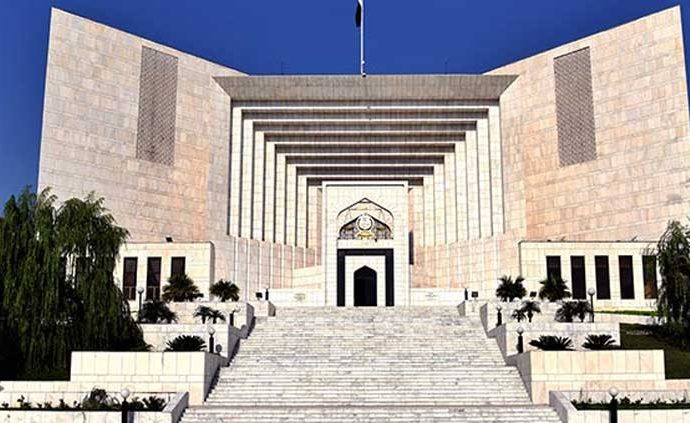ISLAMABAD (Channel News) – On Tuesday, Justice Jamal Mandokhail stated that the constitution expressly prohibits the executive from acting as the judiciary.
During the hearing of the military courts case before the Supreme Court’s constitutional bench, Justice Mandokhail pointed out that the constitution’s division of powers is quite explicit.
The Supreme Court expressed serious constitutional concerns regarding the function of military courts in prosecuting civilians.
Justice Mandokhail, a member of the seven-person constitutional bench chaired by Justice Aminuddin Khan, emphasized that the separation of powers provided in the constitution was unambiguous, and that the government could not serve as the judiciary.
Hearings on other constitutional challenges, including charges of vote manipulation, were postponed so that the court could focus only on the subject of military courts.
Khawaja Haris, representing the Ministry of Defence, opened his argument by noting previous Supreme Court decisions allowing civilians to be court-martialed under military jurisdiction.
However, Justice Mandokhail questioned whether the president could serve as a judge, especially because established legal institutions, like as anti-terrorism tribunals, were accessible. He emphasized that such measures might violate the constitution’s Article 175, which defines judicial powers.
Justice Mandokhail went on to ask if joining the military violates a citizen’s fundamental rights. He mentioned a scenario, which Khawaja Haris subsequently described as fictional, in which simply standing at a military checkpoint may lead to a trial in military court.
Justice Musarrat Hilali responded to Khawaja Haris, saying that this was the most relevant circumstance in the case.
To this, Justice Muhammad Ali Mazhar stated that civilians would only face military courts if they committed acts specifically listed in the Army Act. He noted that standing at a checkpoint without committing a military offense would not result in a court martial.


